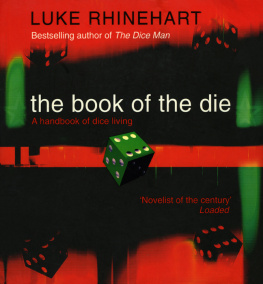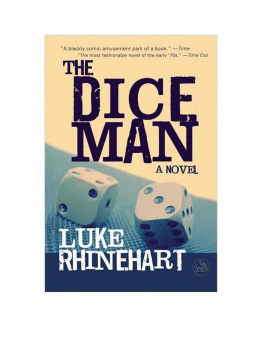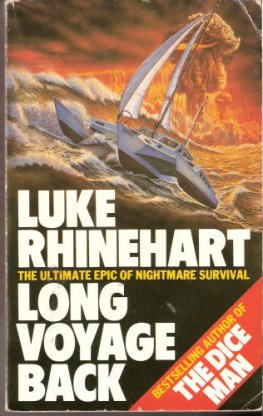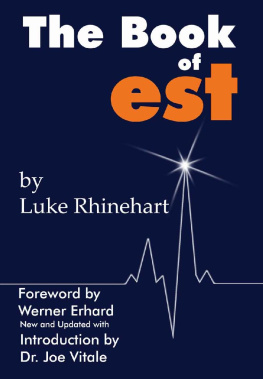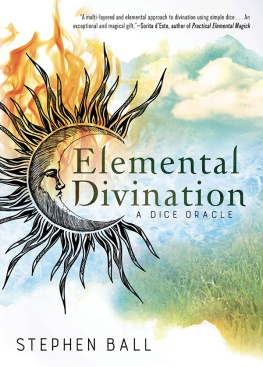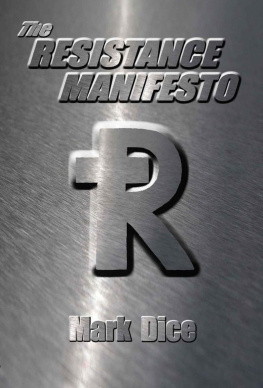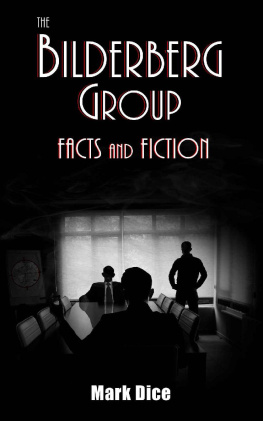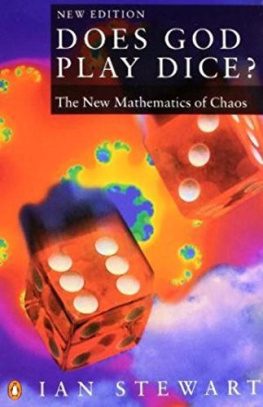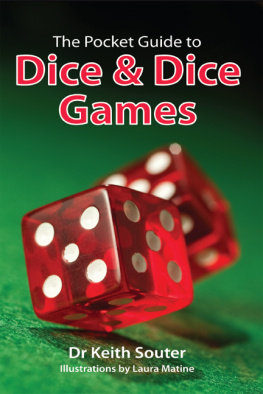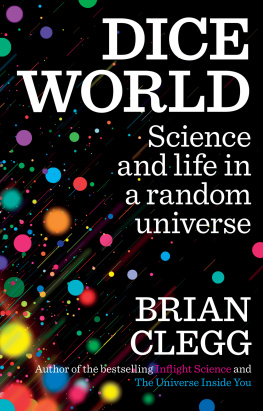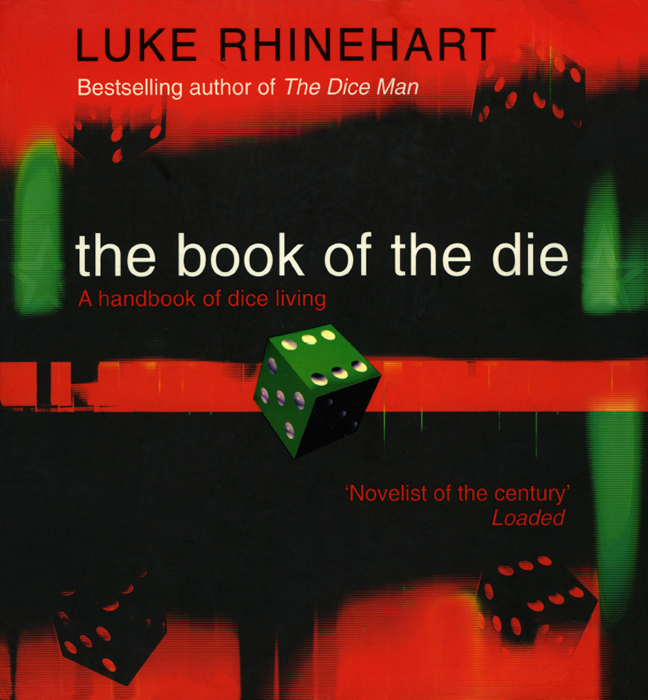Literature can be liberation or litany. It can shock us into new life or lull us in the old. The Book of the Die does not intend to lull. It is a collection of essays, proverbs, parables and nonsense intended to help free us from patterns which dam our lives damming being considered undesirable. It is intended to be dipped into at random, the Ultimate Unanswer being present everywhere at any moment. Sooner or later, by Chance, the lucky reader will discover what this nonsensical book is all about.
This is a Book of Wisdom and, as is true of any book of wisdom, contains a lot of bullshit. Not to worry. The world has always been entertained by bull-shitters and we especially enjoy them when we know they are marking things up as they go along. So read this book with a pint or a beakerful or a joint in one hand and the book in the other and snicker when you feel like it, or explode a happy Bah, humbug!, and smile, but try to avoid frowning: its bad for the complexion.
This book is merely trying to introduce the human race to an entirely new way of looking at life and society and so shouldnt be taken too seriously. Politicians are serious. Youre not one of them, are you?
When we say this is a Book of Wisdom, we do not mean it is a book of philosophy. Philosophy is concerned with truth and consistency, but wisdom is concerned with moving human beings from one state to another. Truth is a fun game to play but it is often unrelated to wisdom. When a Zen master hits a disciple over the head with his staff he does it not because the blow has anything to do with truth, but because he wants to wake the disciple up. So too with our words in this book. They make only occasional pretences to truth, but they hope they are occasionally awakening you.
In the realm of science and philosophy, truth, logic and consistency are important and should be honoured. But in the realm of human living they are usually counterproductive, so a book concerned with our lives should yawn at the mention of truth. (Or puke, depending on the demands of the situation.)
Ideas are maps. When used for the appropriate terrain they are extremely useful. At other times they are burnable trash.
Rational linear books are designed to be read from page 1 to the end. Since this book occasionally suggests alternatives to linear rationality it was felt that it shouldnt be read that way. Hence, the use of dice.
The main sections or chapters are defined by the twenty-one possible results of casting two identical dice. Each such section contains a variety of material proverbs, parables, quotations, illustrations, poems, meandering essays, scenes from movies, contributions from other people who have played with the dice and six options that a die may be cast to choose between. All are more or less related to one subject. We suggest that, rather than proceeding through the book page by page, you choose which chapter to read by casting two dice and then going to the chapter chosen; for it is one of the themes of this book that Chance may have benefits beyond winning a lottery.
Although this is a Book of Wisdom it is also a work of fiction. There are four main characters in The Book of the Die: Luke Rhinehart, the original Diceman; the Lord Chance, the Force in the Universe that likes to stir things up; Whim, the Son of the Lord Chance, who was sent to earth to try to find Ultimate Truth (U.T.); and George Cockcroft, the man who claims to have created these three characters, but who is equally a fictional creation.
Luke originally appeared in The Dice Man, a book that was first published in 1971 but, for reasons that only the Lord Chance understands, has found a greater audience in the last few years than it did a generation earlier. Luke discovered that human beings can rid themselves of institutionalized misery by letting chance into their lives. The philosophy that lies behind Luke and The Dice Man is a major part of this book.
The Lord Chance is the Supreme Creator and thus takes full responsibility for every word you read here. Or rather, takes occasional responsibility, consistency not being one of his strengths. He (or She, depending on the time of day) is a central character in every book ever written but is rarely as acknowledged and named as He (She) is in The Book of the Die.
Whim is the son of the Lord Chance sent to earth to try to find U.T. Whims adventures were once written about, but then suppressed. The true story of Whim will appear next year in a book entitled Whim.
Finally, there is George Cockcroft. In theory, he is the author of several books, including The Dice Man. For most of the last thirty years he has hidden behind the name of Luke Rhinehart, but in this book he begins to peek out around Lukes bulky presence and reveal a few things about himself. Of course, any man who has as one of his mottoes This Truth Above All: Fake It can hardly be considered reliable, so the intelligent reader will take anything he says with the same pinch of salt taken when listening to any other fictional character.
You probably wouldnt be reading this book unless you know something, however vague, about the weird ideas that you fear you may find here. So, a word about dicing.
Dicing is simple: we list some options which a small part of us feels might be challenging or interesting, and then cast a die to choose what we do. At the simplest level the dice choose from among films, books, clothing, food, friends and activities open to an individual at a given time. At a more challenging level, the dice come to choose how we act, what challenges we accept, what emotions we express, what goals we pursue, which of our selves we pretend to be.
The process of dicing helps us to discover and live out the many undiscovered dreams we each have within us. It frees us from our usual bondage to control, purpose and order, into the warm realm of spontaneity and chance. Die-ing is a game to encourage game-playing; a series of acts to encourage acting; a series of selfless whims to kill the self and nourish whim.
Dicing is only one of many ideas in this book. The Taoist sage, the Zen master, the Hindu yogi, the Sufi mystic and even the Christian ascetic share one common purpose: the destruction of the self, liberation from the illusion of a separate and controlling identity. All agree with the philosophy of die-ing: man must give up his illusion that a self can control life; he must let go; he cannot live until he has died.
Since it will soon become clear that nothing in this book is particularly reliable, we suggest that you approach the reading of this book as a game. You might try the game first with the rules we suggest or create your own better rules to create a better game, or, out of rebellion against us, just read the book any way you feel like.

